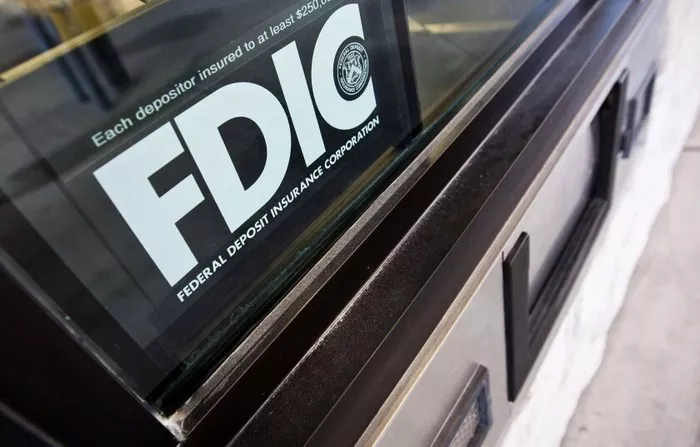The Federal Deposit Insurance Corporation (FDIC) is an essential entity in the banking industry, providing a safety net for depositors. FDIC insurance protects depositors against the loss of their insured deposits if an FDIC-insured bank fails. Understanding the extent and limitations of FDIC insurance for CDs is crucial for depositors to make informed decisions about their savings.
See also: Life Insurance Coverage: How Much is Right for You?
Yes, CDs are generally FDIC insured, but with limitations.
FDIC insurance applies to deposits held at FDIC-insured banks. Most banks in the United States are FDIC-insured, which means that the funds deposited in various accounts, including CDs, are protected up to a certain limit. This insurance covers both the principal balance and any accrued interest, providing a level of security for depositors.
The standard coverage limit is $250,000 per depositor, per insured bank, and per ownership category. This means that an individual can have multiple accounts at the same bank, each insured up to $250,000 as long as they fall under different ownership categories (e.g., individual accounts, joint accounts, and retirement accounts). It’s important to note that this coverage limit applies to the total amount deposited at the bank, not per account. Therefore, if a depositor has several CDs at the same bank, the combined balance of these CDs is subject to the $250,000 insurance limit.
FDIC insurance covers the principal balance and any accrued interest on CDs. This means that if the bank fails, the FDIC will reimburse the depositor for the amount they had in the CD, plus any interest that had accumulated up to the date of the bank’s failure, up to the insurance limit.
Exceptions to FDIC coverage for CDs
While most CDs offered by FDIC-insured banks are covered by FDIC insurance, there are some exceptions to be aware of.
Credit Unions and NCUA Insurance: CDs offered by credit unions are not FDIC-insured. Instead, they are insured by the National Credit Union Administration (NCUA), which provides similar protection through the National Credit Union Share Insurance Fund (NCUSIF). The coverage limits and rules are generally the same as FDIC insurance, but it’s essential to verify that the credit union is NCUA-insured.
Foreign Banks: CDs purchased through foreign banks are not FDIC-insured. Depositors should be cautious when dealing with foreign banks, as they do not have the same protections as domestic FDIC-insured banks. It’s crucial to understand the risks involved and consider alternative ways to protect funds deposited in foreign institutions.
Brokered CDs: Brokered CDs are CDs sold by a brokerage firm, which may be issued by banks that are not FDIC-insured. While many brokered CDs are issued by FDIC-insured banks, it’s important to verify the issuing bank’s FDIC status to ensure coverage. Additionally, if a brokered CD is split among several banks, each portion is subject to the FDIC insurance limits of the respective banks.
See also: Is My Brokerage Account Insured?
Verifying FDIC Insurance
To ensure that your CD is FDIC-insured, it’s important to verify the FDIC status of the bank. The FDIC provides an online tool called BankFind, which allows users to search for FDIC-insured institutions. By entering the bank’s name or other identifying information, depositors can quickly determine whether a bank is FDIC-insured.
Additionally, depositors can contact the FDIC directly through their toll-free number or visit the FDIC’s official website for more information. It’s always a good practice to confirm the FDIC status of a bank before opening any account, including CDs.
Conclusion
In summary, CDs are generally FDIC-insured, providing a secure way to save money with protection against bank failures. However, it’s essential to verify the FDIC status of the bank and be aware of the $250,000 coverage limit per depositor, per insured bank, and per ownership category. For those with deposits exceeding the FDIC limits, spreading funds across multiple banks can provide additional protection.
Alternative Safety Measures for Deposits Exceeding FDIC Limits: For depositors with large amounts of money, it’s wise to spread deposits across multiple banks to ensure full FDIC coverage. Additionally, using different ownership categories, such as joint accounts and retirement accounts, can maximize coverage within the same bank.
Benefits of FDIC Insurance for CD Holders: FDIC insurance provides peace of mind for CD holders, knowing that their savings are protected in case of bank failure. This security allows depositors to focus on growing their funds without worrying about the safety of their principal balance and accrued interest.
In conclusion, understanding FDIC insurance and its limitations is crucial for anyone considering investing in CDs. By verifying the FDIC status of the bank and being aware of the coverage limits, depositors can make informed decisions and ensure the safety of their savings.


